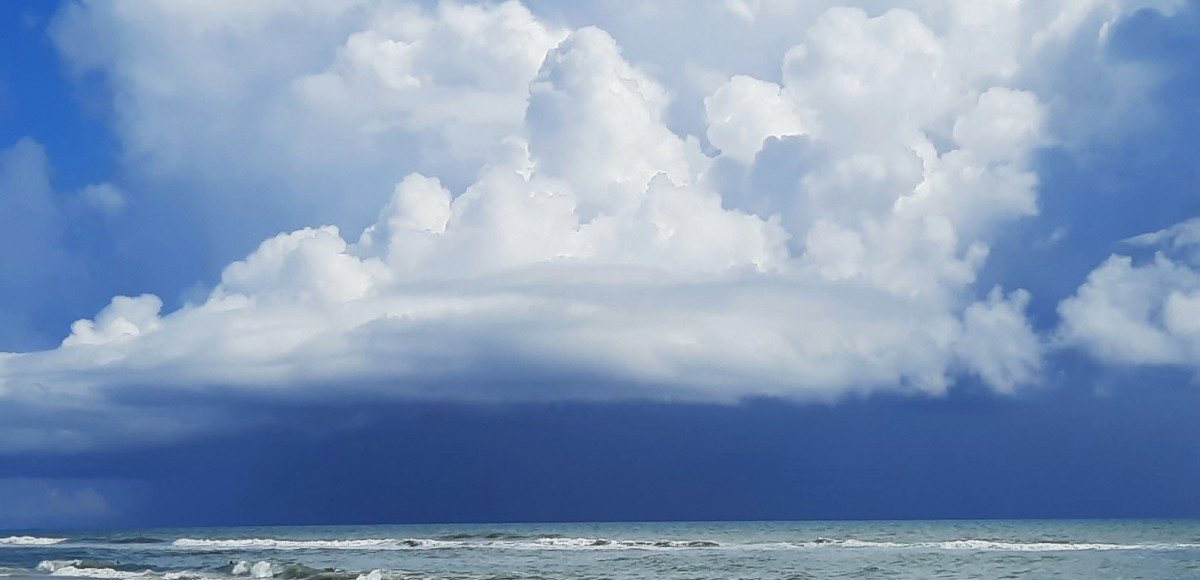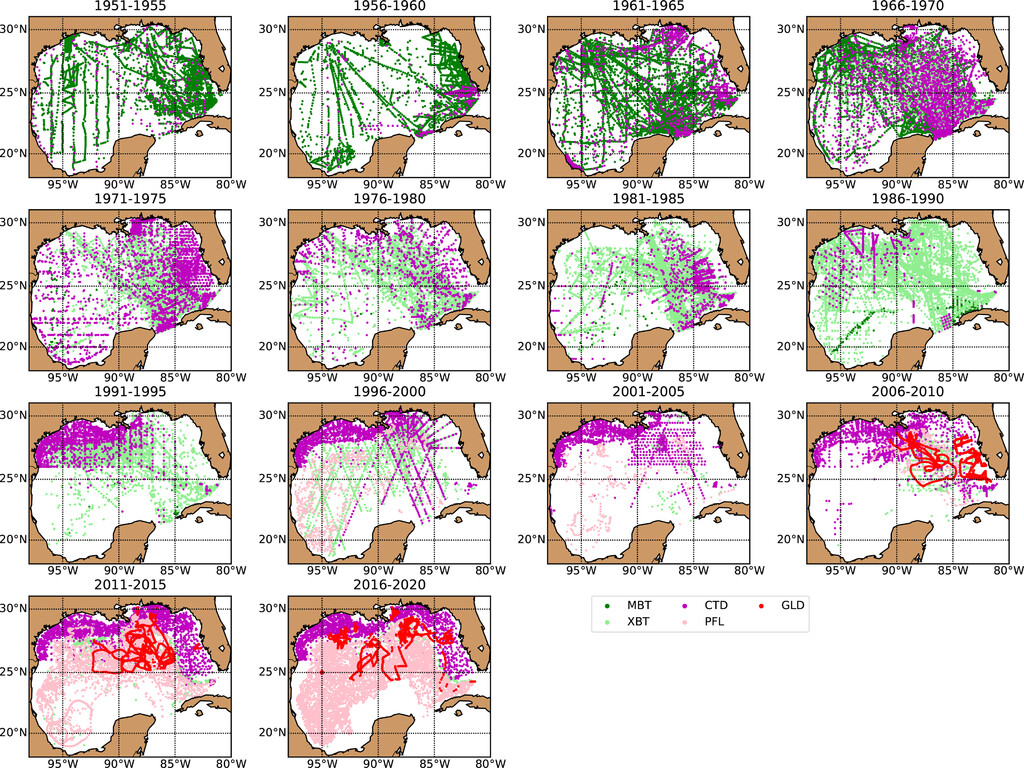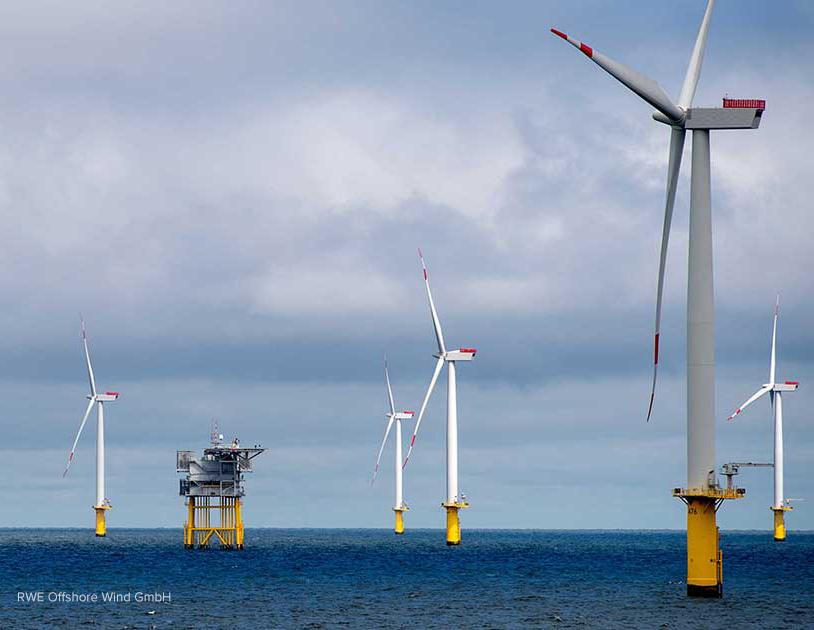
The Gulf of Mexico Coastal Ocean Observing System Fall Meeting also included science and data updates from researchers around the Gulf
The Gulf of Mexico Coastal Ocean Observing System (GCOOS) recently hosted its annual Fall Meeting, focusing discussions on emerging issues related to long-term climate change, including marine heat waves and the development of renewable wind energy platforms in the Gulf.
GCOOS is one of 11 certified regional coastal ocean observing systems under the banner of the U.S. Integrated Ocean Observing System (IOOS) and the only one whose sole focus is on the Gulf of Mexico. Its mission is to provide on-demand information about the Gulf’s coastal and open ocean waters that is accurate, reliable and benefits people, ecosystems and the economy.
“GCOOS and other regional observing system provide the backbone of ocean data used in everything from weather and storm forecasting to search and rescue and contaminant spill response,” said GCOOS Board Chair Kirsten Larsen, a Coastal Data Science Advisor in NOAA’s National Centers of Environmental Information (NCEI). “This data dissemination and the public-private partnerships we develop throughout the Gulf of Mexico support the health and safety of coastal communities.”
GCOOS hosts two annual meetings that focus on important emerging issues and other topics related to data collection and dissemination in the Gulf. In addition to session discussions on marine heat waves and offshore wind energy, the virtual 2023 Fall Meeting included presentations from GCOOS-funded principal investigators — who provided updates on information collected during hurricanes, the Marine Biodiversity Observing Network (MBON), HAB early-warning systems and other topics — and organizational updates from GCOOS Executive Director Dr. Jorge Brenner.
“We had robust discussions of two pressing issues affecting us in the Gulf of Mexico: marine heat waves and offshore wind renewable energy data,” Brenner said. “I think the meeting was an especially great opportunity to begin developing new connections in the emerging offshore wind energy community and to talk about data collection on these new wind platforms that are in the early stages of development in the Gulf. The session discussion on marine heat waves was especially timely, given the record high temperatures seen in oceans around the world, including the Gulf of Mexico, in 2023.”
GCOOS Board Member Dr. Patrick Hogan organized and moderated the marine heat wave session. Presenters and their topic titles were:
- Dr. Zhankun Wang, National Oceanic and Atmospheric Administration (NOAA)-National Centers for Environmental Information (NCEI), “Upper Oceanic Warming in the Gulf of Mexico between 1950 and 2020”
- Dr. Nan Walker, Louisiana State University (LSU), “Sea Surface Temperature Evolution in the Gulf of Mexico from April through September 2023”
- Dr. Brian Dzwonkowski, University of Southern Alabama (USA)/Dauphin Island Sea Lab (DISL), “Marine Heat Waves in the Gulf of Mexico”
- Dr. Nick Shay, University of Miami Rosenstiel School of Marine and Atmospheric Science (RSMAS), “Oceanic Heat Content Variability in the IntraAmerican Seas: Implications for Hurricane Intensity”

Discussion focused on warming trends in the Gulf since 1970 and the potential that it is accelerating, the Gulf’s heat capacity and what that means for the development — and forecasting — of hurricane intensification and data gaps and emerging methods to improve forecasts. Several research questions were discussed to advance this topic over the next several years.
GCOOS Board Member Dr. Ruth Perry organized and moderated the second panel discussion on offshore wind energy data. Presenters were:
- Tershara Matthews, WSP USA, “Environmental Data Collection Over the Lifetime of an Offshore Wind Project”
- Daniel Doolittle, Integral, “Data Collection During the Site Assessment and Characterization Phases to Inform COP Development”
- Joel Southall, RWE Offshore Wind GmbH, “A Developer’s Perspective on Data Collection”
Discussion focused on the processes for developing offshore wind energy platforms in the Gulf, including regulatory functions and addressing stakeholder concerns, the timeline for building new platforms and the potential for development of public-private-academic partnerships surrounding ocean data collection and dissemination.

GCOOS Outreach and Education Manager Dr. Chris Simoniello organized and moderated the partner and member reports. Presenters were:
- Dr. Frank Muller-Karger, University of South Florida (USF), “Continued Development of the US MBON”
- Alaric Haag, LSU, “ESL Cloud-masked SST Layer for GCOOS Gandalf”
- Dr. Brian Dzwonkowski, USA/DISL, “Updates from ARCOS”
- Chad Lembke, USF, “Glider Data Acquired During Hurricane Idalia”
- Dr. Darren Henrichs, Texas A&M University (TAMU), “Continuing the HAB Early-warning System Using Imaging FlowCytobot Data in Texas”
- Dr. Eric Milbrandt, Sanibel-Captiva Conservation Foundation (SCCF), “Observations and Recovery from Hurricane Ian by the River, Estuary and Coastal Observing Network (RECON)”
During the meeting, Board Chair Larsen also installed and welcomed incoming board members:
- Suraida Nañez-James, newly elected to represent the outreach and education sector.
Returning members:
- Joe Swaykos and Dr. Sara Graves, also in the outreach and education sector;
- Dave Driver, private sector;
- Dr. Antonietta Quigg, academic sector;
- and Dr. Kim Yates and Kirsten Larsen representing the government sector.
Their terms will expire in 2026.














